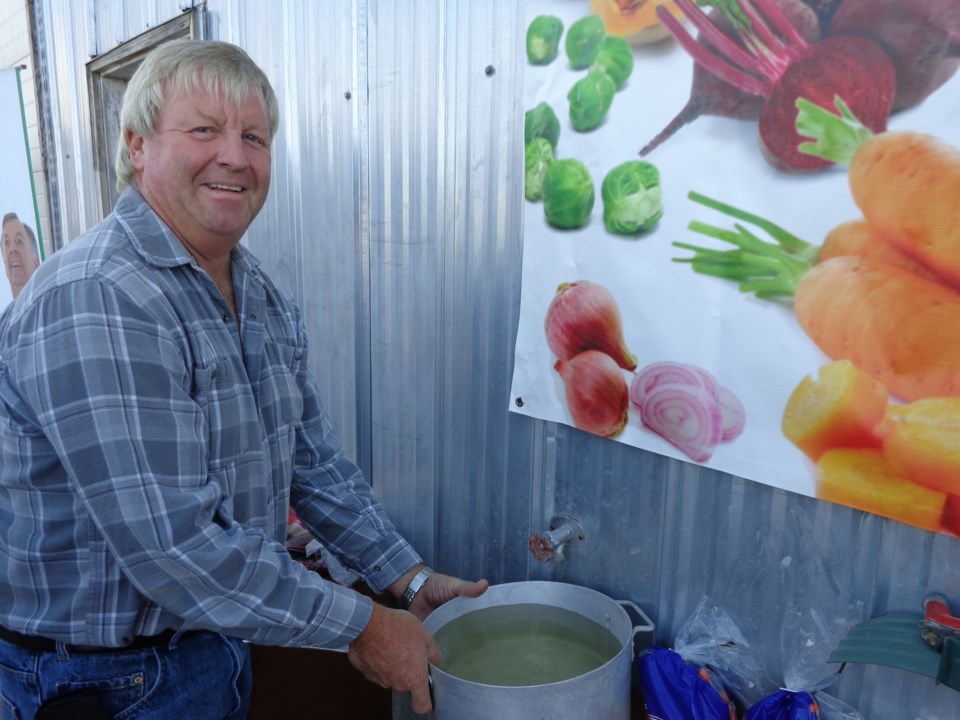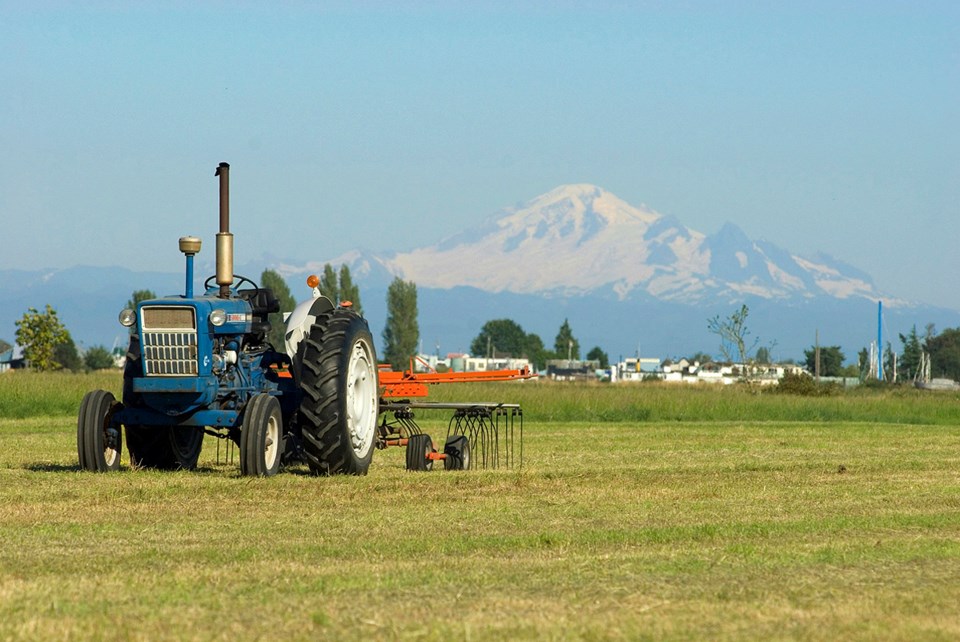The farming community on Westham Island hopes to get better water.
City council recently awarded a $52,000 contract for a consultant to help come up with an irrigation improvement strategy for the area, which has not had a consistently reliable supply of good quality fresh water.
A civic report notes the areas serviced by Delta's irrigation system is gradually expanding as improvements are identified and implemented, but Westham Island is one that has not, in recent years, benefitted from irrigation system improvements.
“In mid-to-late summer, the Fraser River salinity can be quite high near the river intakes that feed west Ladner and Westham Island, which makes the water unsuitable for irrigation. The bulk of Delta's irrigation water supply during late summer is provided by the Tasker Pump Station, located in the Tilbury area,” the report explains. “However, it can be quite challenging to convey irrigation water from Tilbury to west Ladner and Westham Island due to the flat low lying terrain of the agricultural area. In order to improve the availability of fresh water in these areas a consultant is being engaged to determine an effective conveyance strategy and identify key upgrades.”
Several million dollars in funding for the project will be provided from an upcoming MK Delta Lands development contribution - a contribution that was promised as part of a previously approved industrial development proposal.
The civic report also notes irrigation infrastructure projects typically have a lengthy permit process with senior levels of government, which may be further delayed due to COVID-19.
Having a strategy ready is seen as a necessary step to prepare early designs for permit application submissions.
In a letter earlier this year to federal Minster of Infrastructure and Communities Catherine McKenna, Delta Farmers Institute president Peter Guichon said an irrigation project for the island is an ideal candidate for infrastructure funding.
Guichon said for the last several years they have been working with the City of Delta on a proposed project for the 2,250-acre island which has the most fertile farmland in Canada.

Delta Farmers Institute president Peter Guichon told the federal government that the lack of a reliable source of irrigation water is a key challenge for Westham Island
Noting the lack of a reliable source of irrigation water is a key challenge, Guichon said their proposed infrastructure plan is closely aligned with food security and climate change.
“We are at a stage where we are shovel ready to move forward with implementation of the project, although we still require additional funding, therefore we are asking for a contribution from the Government of Canada for approximately $5 million (equal to about 50 per cent of the capital cost of the project),” he wrote.
Listing economic and environmental benefits in the DFI’s submission, Guichon noted, “The community has been working on a funding strategy which would include community driven resources plus outside funding. Contributions of funds from the community looks promising, although an additional $4 million to $5 million needs to be secured.”
The DFI’s submission also pointed out that a recent study supported by the B.C. Climate Action Plan analyzed the impacts of climate change and its effect on rising ocean levels and increases in salt water intrusions, which ultimately negatively impacts the suitability of river water surrounding Westham Island.
“Salt buildup in the soil is a major problem. This could be solved with the spring flushing of ditches by the new irrigation system. This study confirmed that the present and future shortage of irrigation water is a key factor undermining the ability of farmers on Westham Island to meet the growing need for locally produced food products and to respond to the public’s growing concern about food security,” Guichon explained.
Guichon added that with a reliable water source for irrigation, farmers would be able to increase yields by 25 to 50 per cent with their existing cropping pattern.



